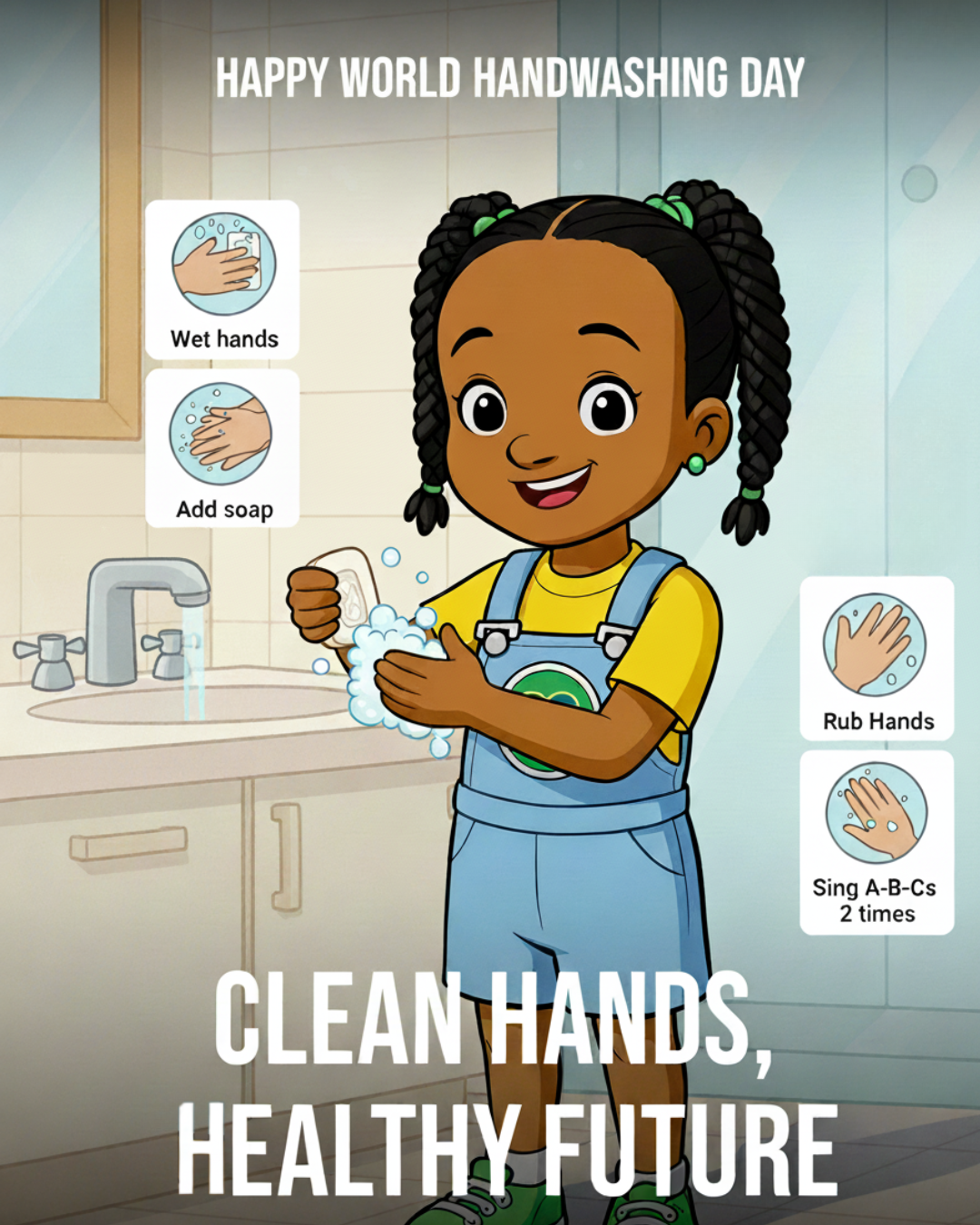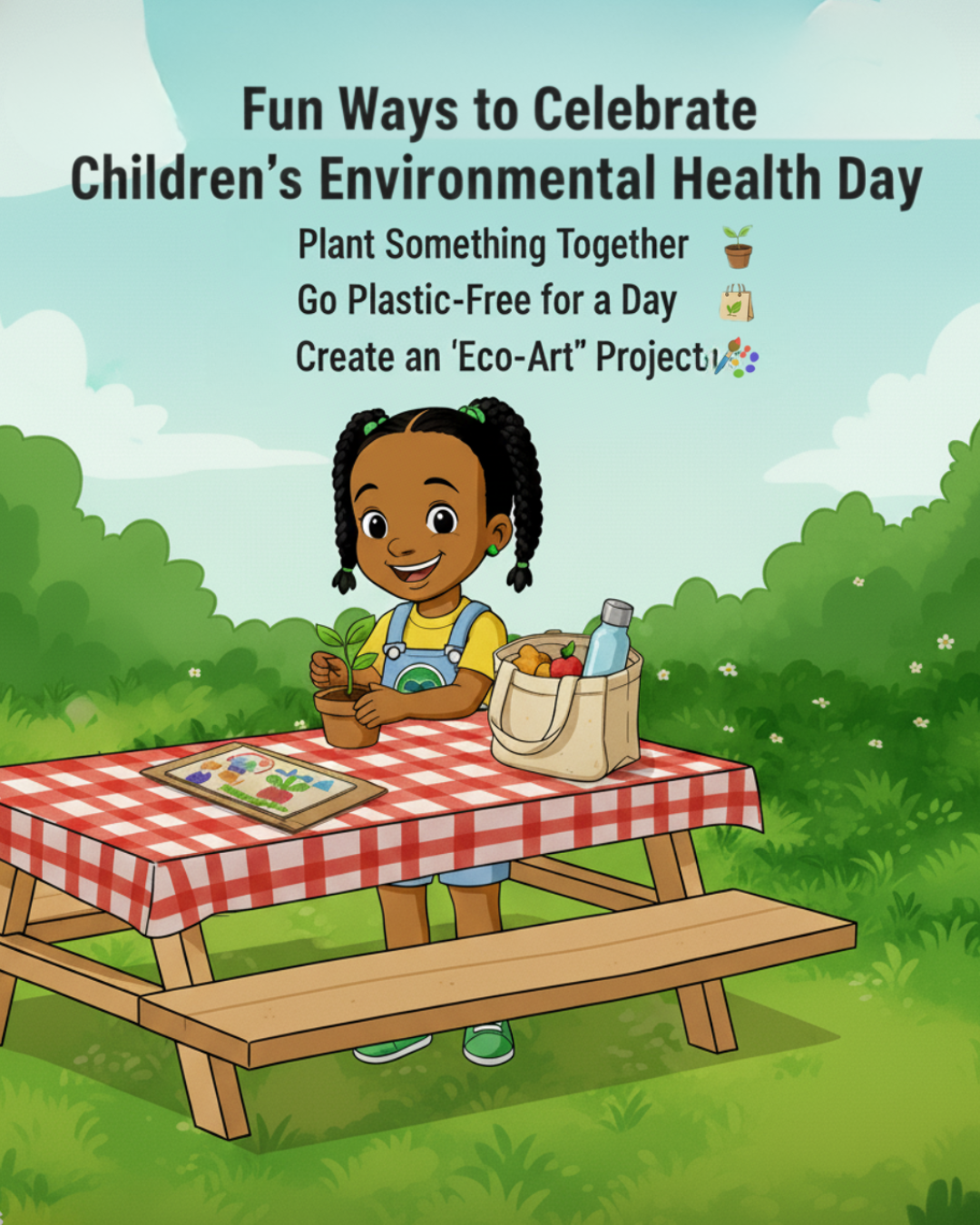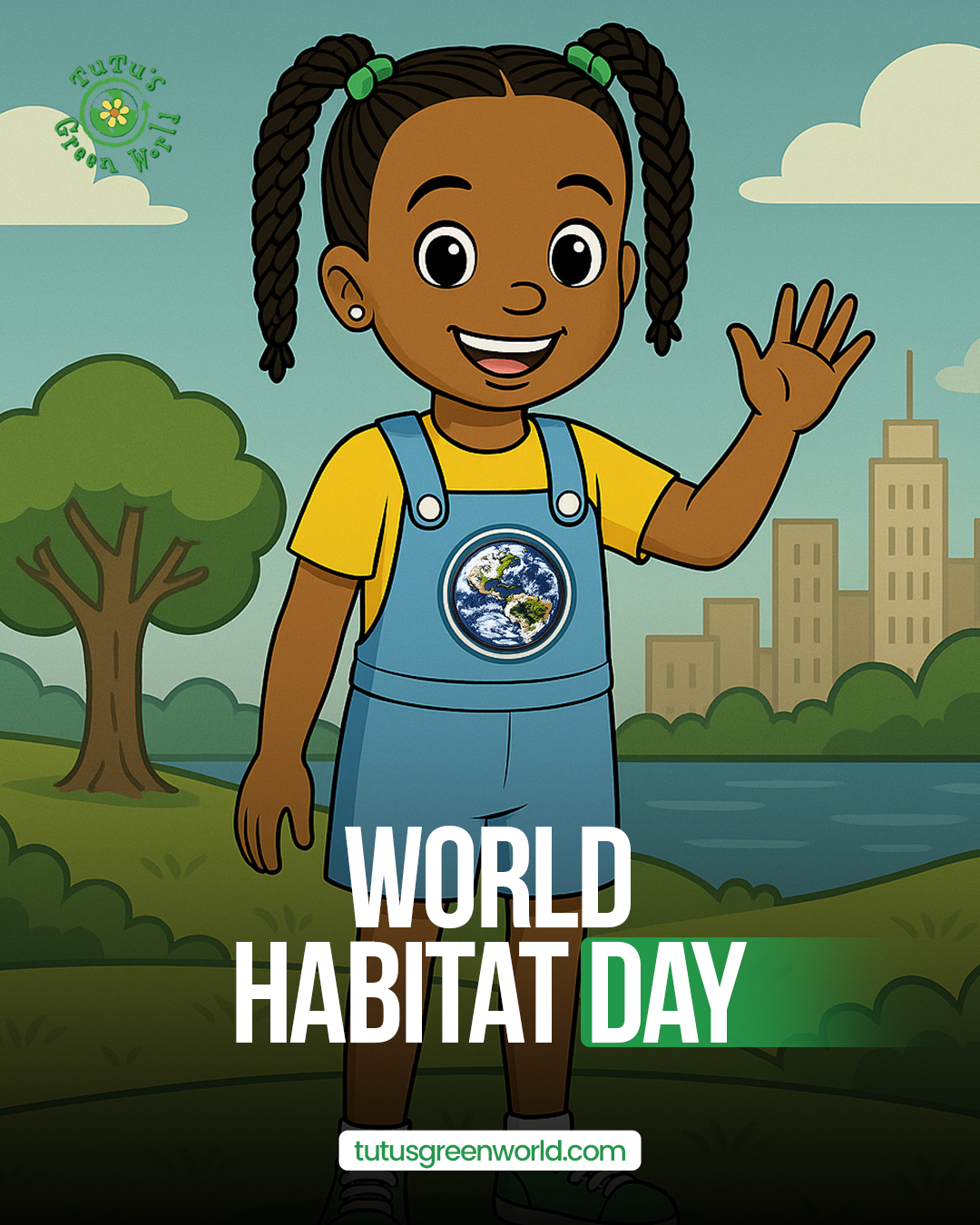
Celebrate Earth Day!
Happy Earth Day! Earth Day is everyday here at TuTu’s Green World. Integrating daily environmental changes teach children good green habits early. See below for some fun and creative ways for children to practice sustainability everyday

-
Gardening: Teach children to plant vegetables, fruits, and flowers, which will foster a love for nature and the environment. They can also learn about composting and reducing waste.
-
DIY crafts: Encourage them to create art using recycled materials like plastic bottles, egg cartons, and newspapers. This will not only spark creativity but also teach them about waste reduction.
-
Nature walks: Plan regular nature walks, hikes, or bike rides to appreciate the environment and learn about local ecosystems.
-
Energy conservation game: Create a game where children earn points for turning off lights, using natural light, or unplugging electronics when not in use.
-
Clothing swaps: Organize clothing swaps with friends and family to encourage children to share and reuse clothes, reducing textile waste.
-
Water-saving challenges: Encourage children to participate in water-saving activities like taking shorter showers or collecting rainwater for plants.
-
Green lunch boxes: Teach children to pack waste-free lunches using reusable containers, utensils, and cloth napkins.
-
Storytelling: Share stories or books that promote sustainability, like TuTu Goes Green by Tulani Thomas and these other titles that discuss the importance of caring for the environment.
-
Wildlife habitat creation: Help children create habitats for local wildlife, like bird feeders, bee hotels, or butterfly gardens.
-
Green movie nights: Watch documentaries or movies that focus on environmental issues and discuss what they've learned.
-
Eco-friendly cleaning: Teach children to make natural cleaning products using ingredients like vinegar, baking soda, and lemon.
-
Transportation choices: Encourage walking, biking, or using public transportation whenever possible to reduce emissions.
-
Sustainable shopping: Involve children in shopping decisions, and discuss the importance of buying local, organic, and fair-trade products.
-
Volunteer work: Participate in local environmental initiatives like tree planting, beach clean-ups, or community gardens as a family.
-
Energy audit: Conduct a home energy audit with your children to identify areas where energy can be conserved, and implement changes together.
Also in TuTu's Green Stuff Blog

Global Handwashing Day: Wash, Protect, and Shine 🌎🫧
Every year on October 15, people all around the world celebrate Global Handwashing Day. It might sound simple, but this day is a powerful reminder of how one small habit, washing your hands properly, can make a huge difference in keeping you and others healthy. From classrooms to sports fields, clean hands are a key part of staying safe and strong.

A Healthier Planet, A Healthier You: Celebrating Children’s Environmental Health Day
Every October, Children’s Environmental Health Day reminds us that caring for our planet means caring for ourselves. 🌎 First established in 2016 by the Children’s Environmental Health Network, the day shines a spotlight on the connection between a healthy environment and the well-being of children everywhere. It encourages kids, families, and communities to take simple steps that protect the earth and create a healthier world for future generations.

🌍 Habitat Heroes: How Youth Can Protect Homes for People and Wildlife
Every year, on the first Monday of October, people all around the world come together to celebrate World Habitat Day. This special day was created by the United Nations back in 1985 to remind us of two very important things. First, that every single person has the right to adequate shelter. Second, that we all share the power and responsibility to shape the future of our cities, towns, and natural spaces.
